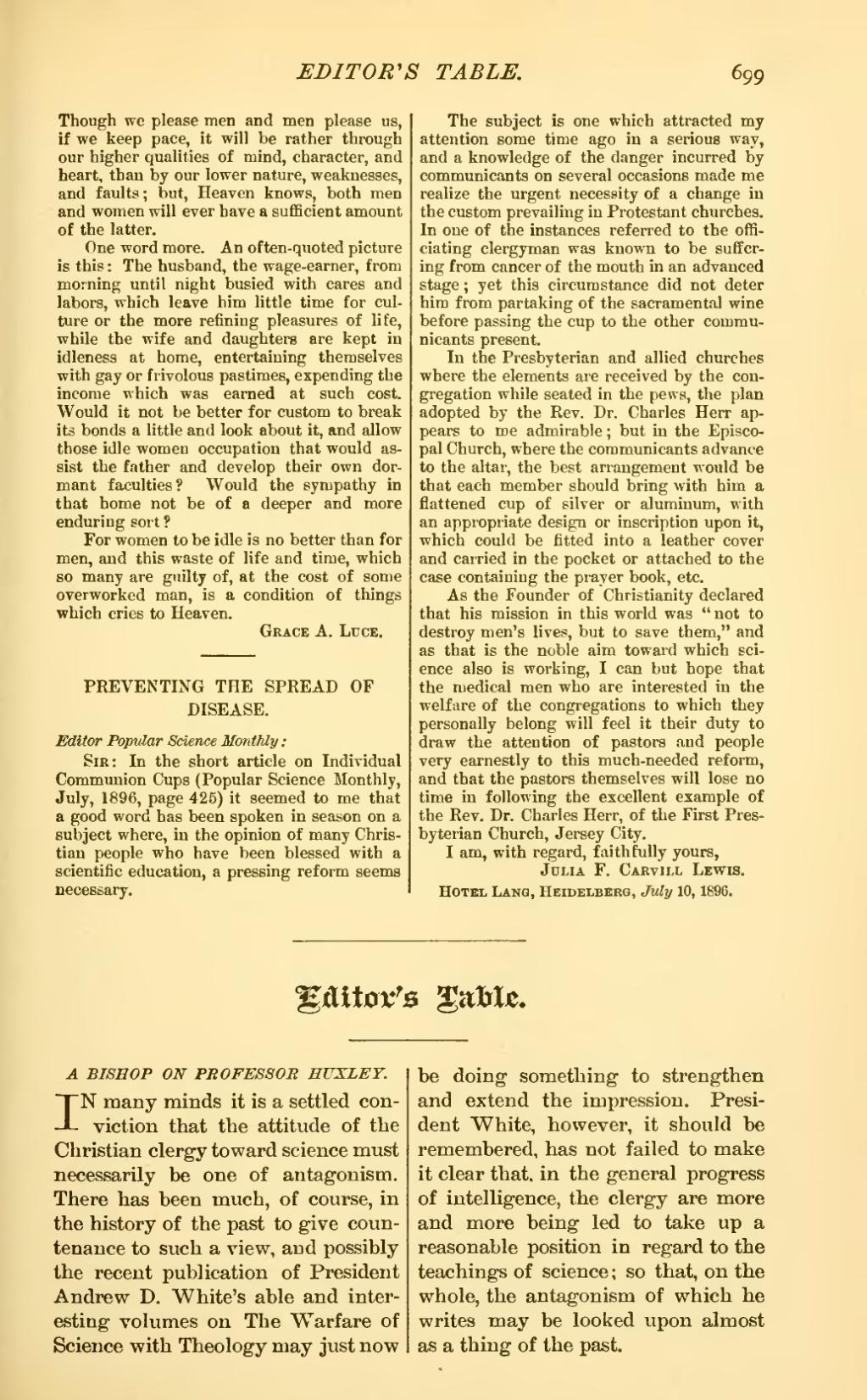Though we please men and men please us, if we keep pace, it will be rather through our higher qualities of mind, character, and heart, than by our lower nature, weaknesses, and faults; but. Heaven knows, both men and women will ever have a sufficient amount of the latter.
One word more. An often-quoted picture is this: The husband, the wage-earner, from morning until night busied with cares and labors, which leave him little time for culture or the more refining pleasures of life, while the wife and daughters are kept in idleness at home, entertaining themselves with gay or frivolous pastimes, expending the income which was earned at such cost. Would it not be better for custom to break its bonds a little and look about it, and allow those idle women occupation that would assist the father and develop their own dormant faculties? Would the sympathy in that home not be of a deeper and more enduring sort?
For women to be idle is no better than for men, and this waste of life and time, which so many are guilty of, at the cost of some overworked man, is a condition of things which cries to Heaven.
Grace A. Luce.
PREVENTING THE SPREAD OF DISEASE.
Editor Popular Science Monthly:
Sir: In the short article on Individual Communion Cups (Popular Science Monthly, July, 1896, page 425) it seemed to me that a good word has been spoken in season on a subject where, in the opinion of many Christian people who have been blessed with a scientific education, a pressing reform seems necessary.
The subject is one which attracted my attention some time ago in a serious way, and a knowledge of the danger incurred by communicants on several occasions made me realize the urgent necessity of a change in the custom prevailing in Protestant churches. In one of the instances referred to the officiating clergyman was known to be suffering from cancer of the mouth in an advanced stage; yet this circumstance did not deter him from partaking of the sacramental wine before passing the cup to the other communicants present.
In the Presbyterian and allied churches where the elements are received by the congregation while seated in the pews, the plan adopted by the Rev. Dr. Charles Herr appears to me admirable; but in the Episcopal Church, where the communicants advance to the altar, the best arrangement would be that each member should bring with him a flattened cup of silver or aluminum, with an appropriate design or inscription upon it, which could be fitted into a leather cover and carried in the pocket or attached to the case containing the prayer book, etc.
As the Founder of Christianity declared that his mission in this world was "not to destroy men's lives, but to save them," and as that is the noble aim toward which science also is working, I can but hope that the medical men who are interested in the welfare of the congregations to which they personally belong will feel it their duty to draw the attention of pastors and people very earnestly to this much-needed reform, and that the pastors themselves will lose no time in following the excellent example of the Rev. Dr. Charles Herr, of the First Presbyterian Church, Jersey City.
| I am, with regard, faithfully yours, |
| Julia F. Carvill Lewis. |
| Hotel Lang, Heidelberg, July 10, 1898. |
A BISHOP ON PROFESSOR HUXLEY.
IN many minds it is a settled conviction that the attitude of the Christian clergy toward science must necessarily be one of antagonism. There has been much, of course, in the history of the past to give countenance to such a view, and possibly the recent publication of President Andrew D. White's able and interesting volumes on The Warfare of Science with Theology may just now be doing something to strengthen and extend the impression. President White, however, it should be remembered, has not failed to make it clear that, in the general progress of intelligence, the clergy are more and more being led to take up a reasonable position in regard to the teachings of science; so that, on the whole, the antagonism of which he writes may be looked upon almost as a thing of the past.

